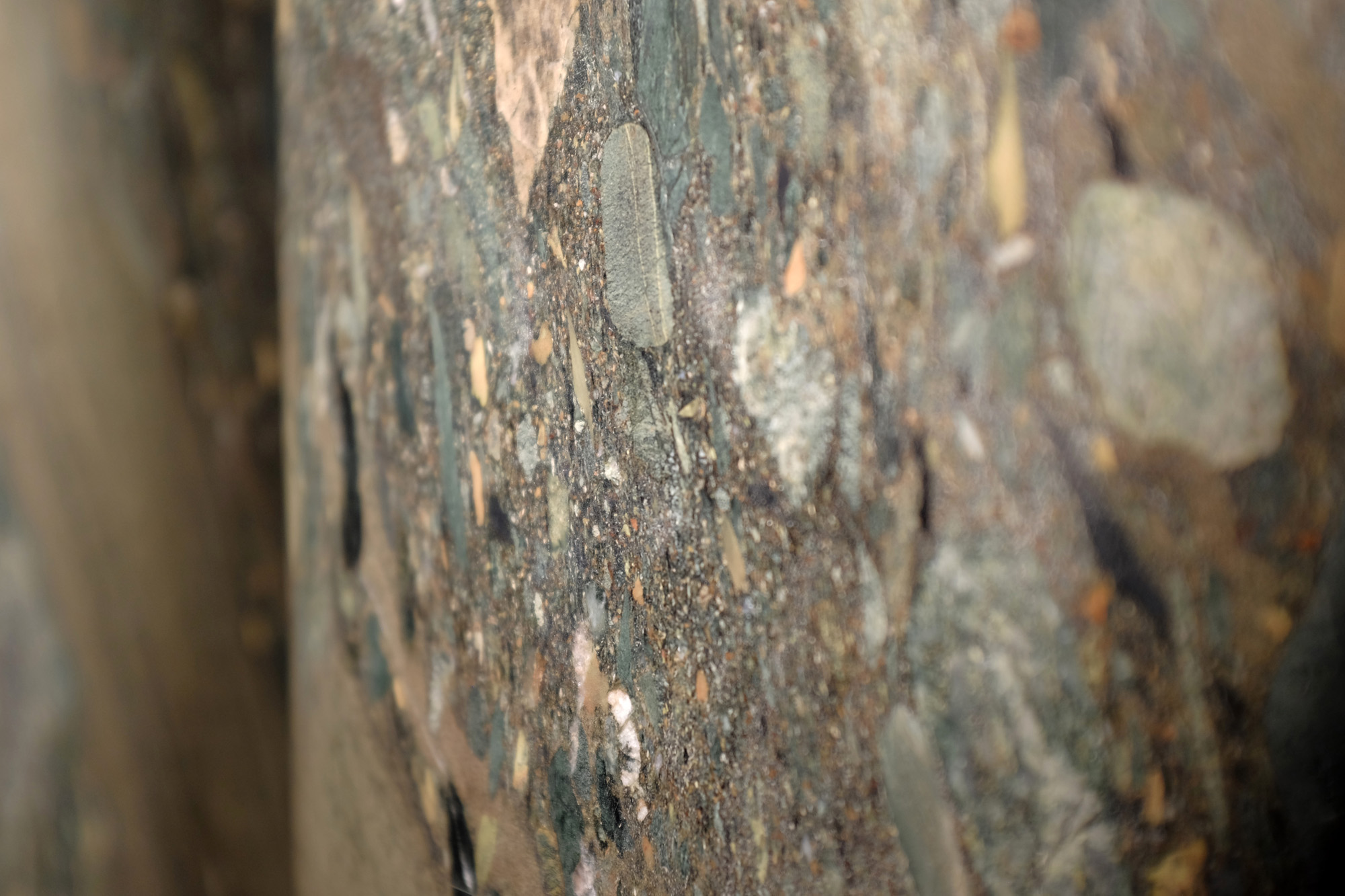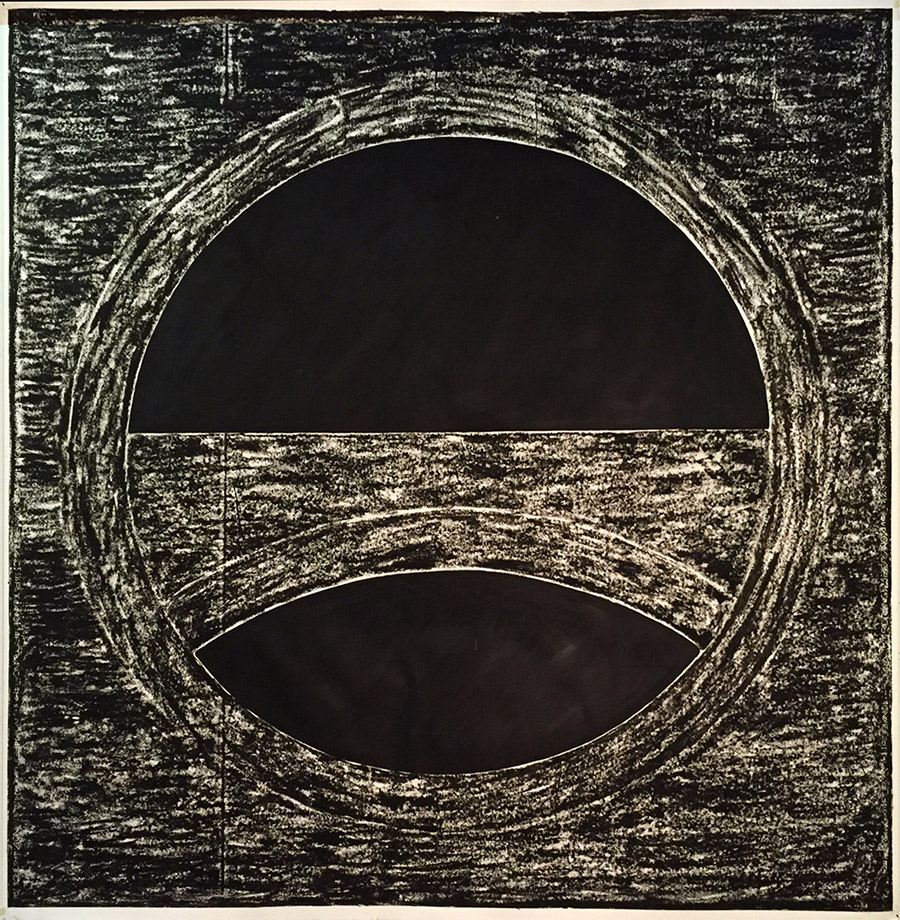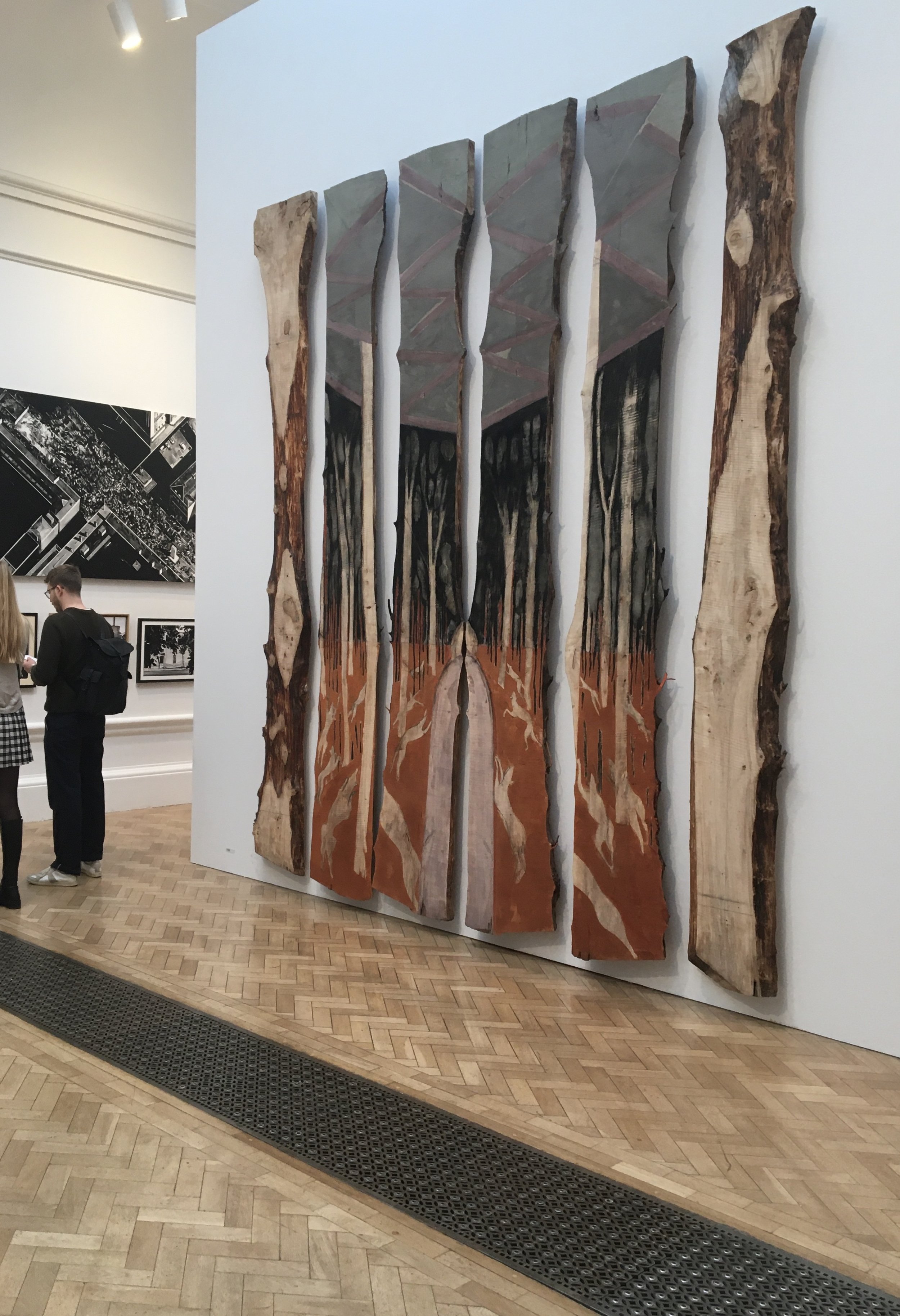Stephen Cox RA
Gemini III , 2012 - 2016
Carved Egyptian breccia
Gemini III is a sculpture consisting of a base and two abstract figures carved from the same block of stone. The stone is known variously as ‘antique Egyptian’ or ‘Hammamat breccia’ and is a conglomerate with bight coloured ‘pebbles’ and fragments of diverse stones: granites, marbles, quartzes, hornblende and hematite of yellow, red, black, pink and white strewn in a greenish matrix. It has been recognised for its beauty since pre-dynastic times making its source one of the oldest, if not the oldest, ‘decorative’ stone quarries in the world. Its fame has yielded up stone to expeditions sent by early kings and pharaohs of Egypt as well as from distant lands including Xerxes and Darius of Persia and Philip of Macedon father of Alexander. These periods of activity have been recorded on the walls of the quarries with famous graffiti that has been left by the quarrymen. The graffiti consists of inventories of men and provisions that were tallied by the masters as well images of idols and offerings some simple, others technically very accomplished others expressing the yearnings of lonely men in a savage desert environment.
The Gemini series of sculpture deals with the relationship between two figures that share the family characteristics of the same block of stone like the generative life force of a splitting cell mirroring the life force of the fertility god Min who was the supreme god of this fabled land of Koptos that was also the source of Egyptian gold. The first Gemini sculpture was shown originally at the Royal Academy Summer Exhibition followed by ‘The Meaning of Stone’ at Ludlow Castle and ‘Sculpture in the Quad’ at Lincoln College Oxford. It is currently on loan to Canterbury Cathedral until March 2017.
















